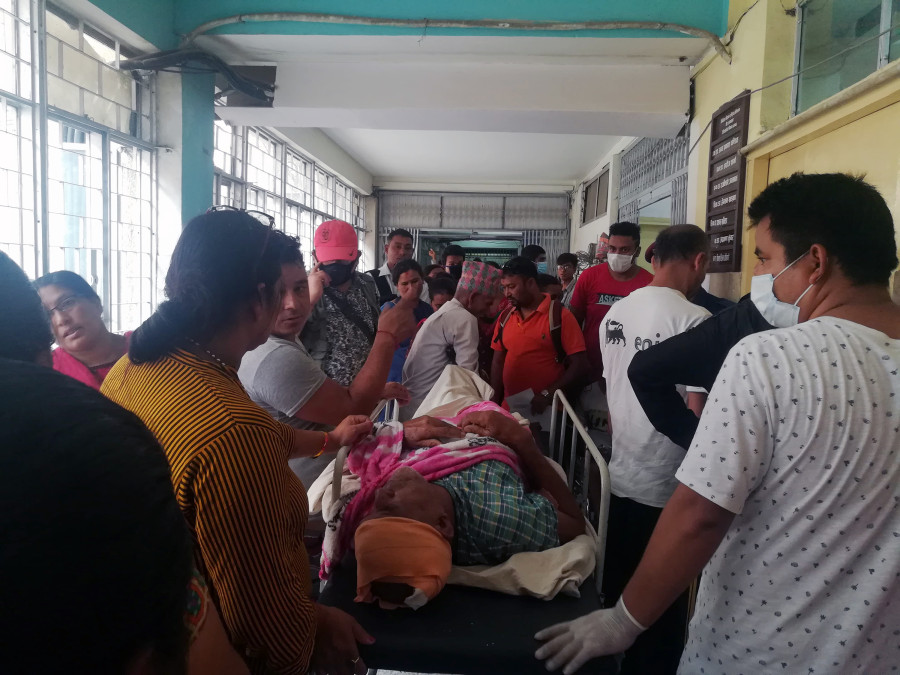Editorial
Not everyone can afford to go abroad for medical treatment
Bir Hospital is intrinsically connected to the larger public health picture, and its service delivery and capacity should be improved.
In Natak ko Chhautho Charan, a famous Nepali story written by Parijat in the 1960s, the wife of the protagonist Nain Bahadur falls sick. He brings her to Kathmandu for treatment and takes her to Bir Hospital. The doctors at Bir ask him to take her somewhere else, but she doesn't get treatment there either. Nain Bahadur has exhausted his resources and, unable to be treated on time, his wife dies. The story does a fantastic job depicting the sorry state of public hospitals in the country. Five decades have passed since Parijat wrote the story, but the state of Bir Hospital remains the same.
According to a report in this newspaper published yesterday, patients have to receive treatment in an unclean environment at Bir Hospital, the country’s oldest public hospital. It has been treating poor people for free; but Bir is overcrowded, and it doesn’t have enough beds. These issues are forcing doctors to ask patients, even desperately poor ones from the country’s remote areas, to seek treatment elsewhere. The condition of the healthcare facilities in the country is deplorable, and what we see in Bir Hospital is fairly representative of the general state of many public hospitals across Nepal.
Bir Hospital is arguably the busiest hospital in the country. With so many patients descending on the place, it should have had the best of everything—from doctors to resources to administrative staff. Regrettably, while the hospital still attracts the best talents in the medical sector, it often fails to retain them. And lack of beds has become a significant issue, too. So pathetic is the condition of the hospital that patients often have to share beds in the emergency room.
Bir is the last ray of hope for the poor. They come from the remotest places of the country to seek treatment for free since they cannot afford to pay the massive bills that private hospitals hand out. Given that, when there are not sufficient beds, they often manage lodging in a nearby hotel to wait for their turn to get admitted to Bir Hospital. But this often turns into a long wait. Over time, the lodging cost tends to outweigh the costs of treatment defeating the purpose, albeit indirectly, of getting treatment for a lower price.
Lack of cleanliness and proper beds are problems that could be easily solved by the authorities, but they often prefer to turn a blind eye. The government has allocated Rs68.78 billion in the budget for the upcoming fiscal year for the health sector, which is 4.48 percent of the total Rs1.53 trillion budget. Bir Hospital’s budget for the last fiscal year was Rs2.1 billion, but the hospital administration says this is not nearly enough.
The government’s apathy towards improving public hospitals is seriously impairing the very lives of its citizens. Not everyone can afford to fly out of the country for treatment like those at the helm often do. Bir Hospital needs to be made functional, and this warrants a strong will power on the part of the respective ministry. The poor cannot be allowed to die just because they cannot afford expensive healthcare.
***
What do you think?
Dear reader, we’d like to hear from you. We regularly publish letters to the editor on contemporary issues or direct responses to something the Post has recently published. Please send your letters to [email protected] with "Letter to the Editor" in the subject line. Please include your name, location, and a contact address so one of our editors can reach out to you.




 14.24°C Kathmandu
14.24°C Kathmandu














